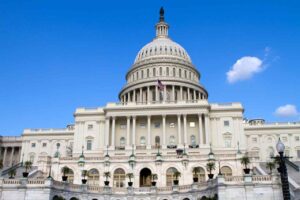Trump’s Influence Backfires as Canadian Liberals Win Election

Canadians handed Prime Minister Mark Carney and the Liberal Party a renewed mandate Monday night, solidifying their hold on power through a coalition-style minority government — despite, or perhaps because of, escalating political interference from U.S. President Donald Trump.
Carney, who assumed office weeks ago following internal Liberal leadership changes, led his party to a strong showing in the April 28 federal election. While falling short of an outright majority, the Liberals secured enough seats to continue governing with support from smaller parties, dealing a sharp blow to Conservative leader Pierre Poilievre, who failed to win even his own riding of Carleton.
In his victory speech, Carney addressed the elephant in the room: “We will never let the U.S. or President Trump break us,” he declared to supporters in Toronto. “Canada is a proud, independent nation. We are not, and never will be, the 51st state.”
The unusually blunt rhetoric followed months of friction with President Trump, who openly mused about annexing Canada and slapped new tariffs on key Canadian exports. Trump’s repeated comments about Canada’s “weak leadership” and claims that “people in Alberta would rather be American” drew widespread rebuke across Canadian political lines.
Despite endorsing no official candidate, Trump appeared to favor Poilievre, whose platform aligned more closely with the populist right. Yet following the conservative defeat, Trump expressed no regret. In a statement issued Tuesday morning, Trump said, “I run America and the world. That’s what real leadership looks like.” He added, “If Canada’s election was about me, that just proves how powerful I am.”
Trump also reposted a video on Truth Social showing protests in British Columbia with the caption, “They love Trump up there!” The clip, however, was several years old.
The President’s response drew immediate criticism from foreign policy experts. “It’s deeply troubling that the U.S. President is celebrating the defeat of a political ally simply to stoke his own ego,” said Laura Jennings, a former U.S. ambassador to Canada. “This isn’t diplomacy. It’s destabilization.”
Back in Ottawa, Carney pledged to reduce economic dependence on the U.S. and explore closer trade ties with Europe and Asia. “This election has made something clear,” he said. “Canada’s future will not be dictated by any foreign leader — no matter how loud their voice.”















